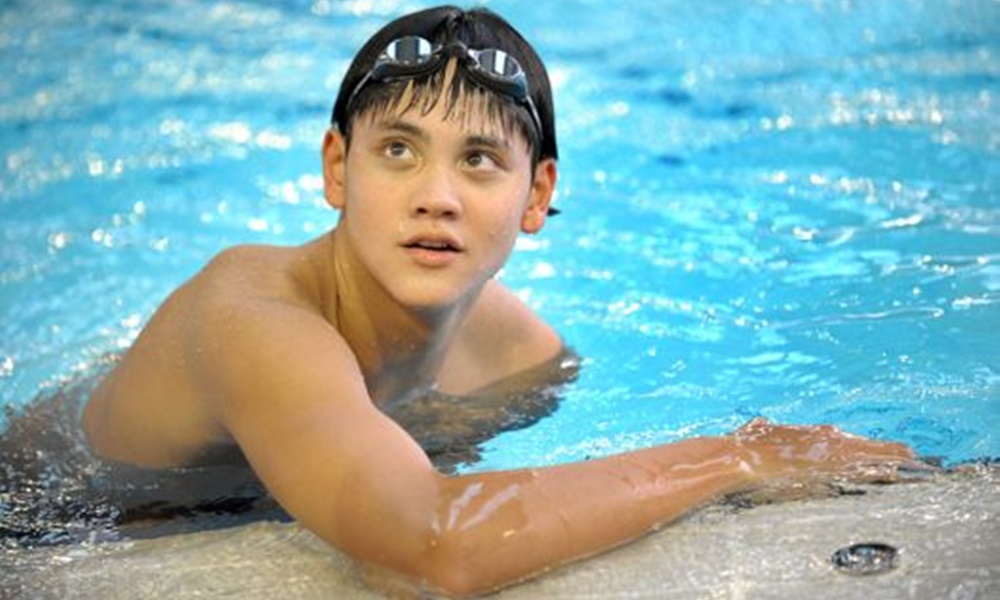
One of the examples listed in the Collins Dictionary for usage of “teaching a thing or two” in a sentence is “Everybody gets excited about the idea of teaching you a thing or two about tennis”.
All 16 other examples are also positive. So, why did some Malaysians react negatively to Singapore swimmer Joseph Schooling’s remark about going to Malaysia and teaching them a thing or two?
He later clarified, “I was actually talking about our younger kids going there and teaching (our) rookies a thing or two about the launch pad that we have in the SEA Games to bigger and better meets in the future.”
Last Friday, Youth and Sports Minister Khairy Jamaluddin urged Malaysians not to be oversensitive over the remark by Schooling, which was taken out of context.
Olympic Council of Malaysia president Tunku Imran Tuanku Ja’afar also reminded fans who will be at the swimming venue not to jeer at Singapore’s Olympic champion Schooling for his misconstrued remark.
The SEA Games is the greatest opportunity for Malaysians to make visitors from ASEAN countries feel most welcome to our shores. Last year, over 20 million or 75.8 percent of all visitors came from the other nine Asean countries, with Singapore alone contributing 49.6 percent.
And just like many other Singaporeans and Malaysians with families on both sides of the Causeway, Schooling’s mother was from Ipoh, where his aunt and maternal grandmother still live.
Sadly, personal development is grossly lacking in our education system, and this is clearly evident with poor communication skills and low emotional intelligence.
Many Malaysians could be angry over nothing, easily taking offence when no offence was intended. They do not realise that their reaction is more of a reflection of themselves and less to do with others.
For example, words alone are neutral and there is no sure way of knowing what the writer meant, more so when most Malaysians have poor language skills, and are unable to think, speak or write clearly.
They may be able to speak several languages or dialects but are a master of none. Their communication skills are just as weak.
In 1999, I was fortunate to attend a programme to “train the trainer” for Malaysian hosts conducted by the Tourism Ministry.
It was modelled after the hugely successful Canadian programme which succeeded in training the locals to become great hosts for visitors to the 1986 World Expo held in Vancouver.
It was so successful that American Express bought over the training programme for worldwide distribution.
Participants learned that interpersonal communication skills are key to great customer service, and that words used in verbal communication are given only seven percent weightage.
This is because the same word can have the opposite meaning when spoken lovingly or angrily. It is not what you say, but how it was said.
As such, the tone of the voice or vocal communication is given a 38 percent weightage. We think and say using words, but our true feelings are conveyed by the sounds we make.
But the aspect of communication valued above all is non-verbal, which I describe as visual communication, that takes up 55 percent weightage.
This is because our facial expression and body language are dead giveaways as to how we feel. Confidence tricksters take pains to cover up their emotions but give them away after a while.
And many people do not realise that we are communicating all the time even when remaining silent, whether we are standing, moving or sitting.
In workshops where I conduct training on courtesy, participants become aware that their courtesy is on display all the time, and there is no customer service without courtesy.
It is no surprise many Malaysians are involved in unnecessary quarrels as they lack personal development and communication skills.
It would be great if Malaysia can win 111 gold medals as targeted, but in my book, any competitor, irrespective of nationality, who has performed to the best of his or her ability deserves a platinum medal.
Likewise to Malaysians who make all visitors feel truly welcome, and those at the venues who cheer all competitors on.
Such gestures, if developed to become our Malaysian culture, are worth more than gold medals.
If we can do that, the rest of the world would be happy for Malaysia to teach them a thing or two, just like the Japanese have done on courtesy. - Mkini


No comments:
Post a Comment
Note: Only a member of this blog may post a comment.